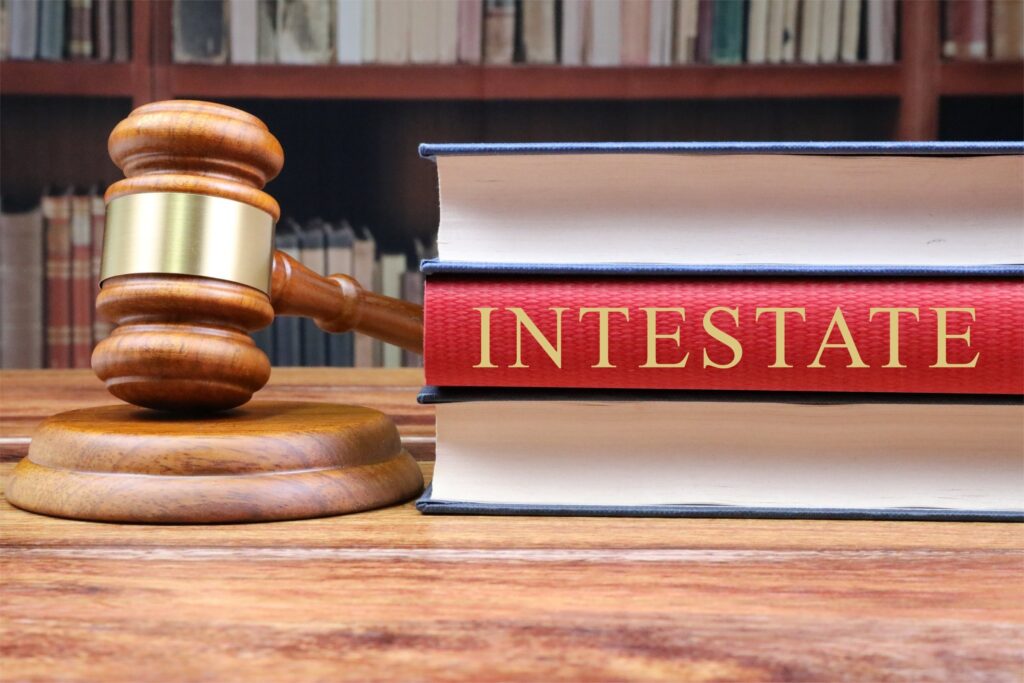Changing lawyers during probate in Texas is a situation many people face, but it can come with both legal and financial challenges. The process of probate itself is already complicated, and when you are considering whether to change attorneys mid-process, it’s important to understand the potential consequences. So, how much trouble to change lawyer during probate in Texas? The short answer is that it depends on the circumstances, but it can create delays, additional costs, and complications that need to be carefully considered.
In this article, we’ll dive deep into what happens when you decide to change lawyers during probate in Texas, including the practical and financial implications of such a decision. We’ll walk you through scenarios where changing your lawyer might make sense, how to go about it, and what to expect in terms of potential disruptions in the probate process.
Understanding the intricacies of probate law in Texas, along with your rights as a client, will help you make an informed decision if you’re considering switching attorneys during probate.
Why Might You Want to Change Your Lawyer During Probate?
Before we explore the legal and financial implications of switching lawyers during probate in Texas, it’s essential to understand why you might want to make this change in the first place. While it’s common to stick with the same attorney throughout the probate process, certain situations might prompt you to seek out a new one. Here are some of the reasons people change lawyers during probate:
1. Lack of Communication or Responsiveness
One of the most common reasons for changing lawyers during probate is a lack of communication. Probate can be a lengthy and complicated process, and you might find yourself frustrated if your lawyer doesn’t keep you informed or is difficult to reach when you need updates. If your attorney is not providing the level of attention you feel your case deserves, it may prompt you to look for someone else who can offer more support and transparency.

2. Differences in Strategy or Approach
During probate, legal strategies can vary, and sometimes an attorney’s approach may not align with what you feel is best for the estate. You might disagree with the way your attorney is handling certain aspects of the case or feel that they are not prioritizing your interests in the way that you expect. Changing lawyers can allow you to work with someone whose approach better suits your goals for the estate.
3. Incompetence or Mistakes
In some cases, you may encounter situations where your attorney has made mistakes or shown incompetence in handling the probate process. This could include missing important deadlines, filing incorrect paperwork, or not following proper legal procedures. If you find that your attorney’s errors are hindering the progress of probate, changing lawyers may be necessary to avoid further complications.
4. Higher Fees or Unclear Billing Practices
If your current lawyer’s fees are higher than anticipated or you are unclear about their billing practices, this could be a good reason to consider switching lawyers. Probate can be costly, and you may want to ensure that you’re getting the best value for the services rendered. If your current attorney’s fees feel disproportionate to the level of service, it’s worth exploring other options.
5. Personal Conflicts or Trust Issues
In rare cases, personal conflicts or a lack of trust in your attorney can be a reason for switching during probate. If you feel that your lawyer is not acting in your best interest or if there’s a breakdown in your professional relationship, it may be time to find a new attorney with whom you feel more comfortable and confident.
What Happens Legally When You Change Lawyers During Probate?
Now that we’ve explored why people might consider changing lawyers during probate, let’s look at what happens legally when you make that decision. How much trouble to change lawyer during probate in Texas? The answer depends on how far along the probate process is and the specific circumstances of your case.
1. Your Right to Change Lawyers
In Texas, you have the right to change your attorney at any time during the probate process. Whether you’re the executor of the estate, a beneficiary, or someone with an interest in the estate, you are allowed to terminate the relationship with your lawyer and seek out new representation. There are no specific legal restrictions preventing you from changing lawyers, but there are practical considerations that come into play, especially if you are deep into the probate process.
2. Formal Process for Changing Lawyers
To change your attorney during probate, you must go through a formal process. This process generally involves the following steps:
- Notifying Your Current Attorney: The first step is to inform your current attorney that you wish to terminate their services. It’s important to do this in writing so that there is a clear record of your decision.
- Signing a Substitution of Attorney Form: You will need to sign a Substitution of Attorney form, which allows the new attorney to formally replace the old one. This form needs to be filed with the probate court to ensure that the change is officially recognized in the legal proceedings.
- Transferring Documents: Once your new attorney is on board, your old attorney must provide all necessary documents, files, and information related to the probate case to the new attorney. This ensures there is no disruption in the case and that the new attorney has all the information they need to move forward.

3. Potential Delays and Disruptions
Changing lawyers during probate can cause delays and disruptions in the process. One of the biggest concerns is that the new lawyer will need time to catch up on the case, which can take weeks or even longer, depending on the complexity of the estate. If the probate process is far along, this transition period can slow things down and cause additional frustration.
In some cases, the probate court may need to be informed about the change, and hearings or deadlines might need to be rescheduled. This is particularly true if the case is contentious or there are disputes among the heirs or beneficiaries.
4. Effect on Court Deadlines
When you switch attorneys, it can affect any upcoming court deadlines. Probate often involves strict deadlines for filing documents, accounting for assets, and other procedures. If your attorney has missed a deadline or you are in the process of switching, it’s important to make sure that your new lawyer is aware of these deadlines and is prepared to meet them. Otherwise, you risk further delays or complications that could hinder the estate’s settlement.
Financial Implications of Changing Lawyers During Probate
Changing lawyers during probate also comes with financial implications that you need to consider. Here are some of the financial aspects of switching lawyers:
1. Additional Costs for the New Attorney
When you hire a new lawyer, you will likely incur additional fees. Depending on the attorney’s hourly rate or fee structure, this can add extra costs to the probate process. While you are not expected to pay double for the same work, there could be extra charges associated with reviewing documents, meeting with you to understand your case, and catching up on the probate proceedings.
2. Possible Costs for Terminating the Relationship
Your current attorney may also charge you for any work they’ve done up until the point of termination. This could include the time spent on filing documents, communicating with the court, or other tasks related to the probate case. If you are unhappy with your current attorney’s services, you may want to discuss their fees and negotiate if you believe they are charging unfairly for their work.
3. Probate Process Delays Leading to More Costs
As mentioned earlier, switching lawyers can lead to delays in the probate process. These delays might add to the overall costs of the estate’s administration. For example, if deadlines are missed or hearings are rescheduled, the estate may need to pay additional court fees or administrative costs.
4. Increased Complexity and Potential for Additional Fees
In some cases, changing lawyers during probate can make the process more complex, especially if the new attorney needs to familiarize themselves with a complicated estate. This added complexity may result in increased fees, as the new attorney may have to spend more time reviewing the case and understanding the intricacies of the estate’s assets and debts.

When Should You Change Lawyers During Probate?
While you have the right to change your lawyer during probate, it’s important to carefully consider the timing. If you’re early in the process and the transition is smooth, changing attorneys may be a relatively minor inconvenience. However, if the case is well into the probate process, changing lawyers could cause significant delays and complications.
Here are some scenarios in which changing your lawyer during probate might be appropriate:
- When communication breaks down: If your attorney is not responsive or fails to keep you informed about the progress of the probate case, it may be time to consider a change.
- When there’s a disagreement on strategy: If you disagree with the approach your lawyer is taking and feel they’re not acting in your best interest, switching lawyers can provide a fresh perspective and new direction.
- When there’s a lack of expertise: If your current attorney lacks experience in probate law or isn’t handling the case efficiently, it’s important to hire someone with more expertise in this area.
Conclusion
How much trouble to change lawyer during probate in Texas? While changing attorneys during probate is legal and your right, it comes with potential delays, added costs, and complications. It is essential to weigh the pros and cons carefully before making such a decision. If you are dissatisfied with your current attorney, discuss your concerns openly and see if a resolution can be reached. If that’s not possible, changing lawyers may be necessary to ensure that the probate process moves forward smoothly and in your best interest.
Remember, if you decide to switch lawyers, it’s vital to consult with an experienced probate attorney to ensure a seamless transition and avoid any disruptions in the probate process. By understanding your legal rights and the potential challenges, you can make an informed decision and navigate the complexities of probate in Texas.








